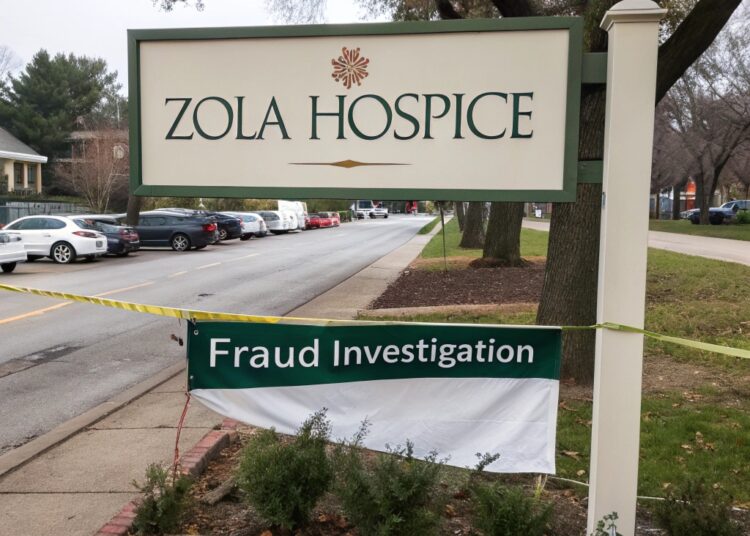Introduction
Healthcare fraud remains a significant challenge in the medical industry, often leading to financial losses, compromised patient care, and legal repercussions. One such alarming case is the Zola Hospice Fraud, which exposed systemic corruption and unethical practices within hospice care services. This scandal sheds light on how fraudulent healthcare providers exploit vulnerable patients and government programs for financial gain. In this article, we will explore the nature of the fraud, its impact, legal proceedings, and the broader implications for the healthcare system.
Understanding Hospice Care
Hospice care is a specialized type of medical service that focuses on providing comfort and palliative care to terminally ill patients. The primary goal of hospice care is to improve the quality of life for patients in their final stages, offering pain management, emotional support, and spiritual care. Since Medicare, Medicaid, and private insurance plans often cover hospice care, the industry has become a lucrative target for fraudulent schemes.
The Zola Hospice Fraud Case
The Zola Hospice Fraud case is a striking example of how unscrupulous healthcare providers manipulate the system for financial gain. Investigations revealed that Zola Hospice engaged in fraudulent activities, including falsifying patient records, billing Medicare for unnecessary services, and enrolling patients who were not terminally ill.
Key Elements of the Fraud
- Falsified Medical Records
- Investigators found that Zola Hospice altered medical records to make patients appear sicker than they were, ensuring they met the eligibility criteria for hospice care.
- Physicians and healthcare workers were pressured to diagnose patients with terminal illnesses, even when medical evidence did not support such diagnoses.
- Unnecessary Enrollments
- Many patients enrolled in Zola Hospice’s services were not terminally ill and did not require palliative care.
- Sales representatives and marketers were incentivized to recruit patients, sometimes offering financial rewards to patients and families who agreed to enroll.
- Fraudulent Billing Practices
- Zola Hospice submitted fraudulent claims to Medicare and Medicaid for services that were either never provided or medically unnecessary.
- Billing records showed inflated charges, overbilling for routine care as though it were complex palliative treatment.
- Neglect and Poor Patient Care
- Some patients received little to no actual hospice services, despite the organization receiving significant Medicare reimbursements.
- Patients were often neglected, with inadequate pain management and little oversight from licensed medical professionals.
How the Fraud Was Uncovered
The Zola Hospice scheme was eventually exposed through a combination of whistleblower reports, audits, and law enforcement investigations. Former employees, concerned about unethical practices, filed complaints under the False Claims Act, leading to an in-depth federal investigation.
Whistleblowers and Insider Reports
- Former nurses and administrators at Zola Hospice reported the fraudulent practices to government agencies.
- Some whistleblowers filed qui tam lawsuits, which allow individuals to sue on behalf of the government in cases of fraud.
Government Audits and Red Flags
- A routine audit of Medicare billing records revealed discrepancies in Zola Hospice’s claims.
- Investigators noticed an unusually high number of patients who had remained in hospice care beyond the expected six-month eligibility period without proper medical justification.
Federal Investigations
- The U.S. Department of Justice (DOJ) and the Office of the Inspector General (OIG) launched a full-scale investigation, eventually leading to arrests and indictments of key executives at Zola Hospice.
- Several employees cooperated with authorities in exchange for reduced sentences, providing evidence of the fraudulent scheme.
Legal Consequences and Penalties
The legal ramifications of the Zola Hospice Fraud were significant, resulting in criminal and civil charges against company executives, healthcare providers, and marketing personnel involved in the scheme.
Criminal Charges
- Several executives were charged with healthcare fraud, conspiracy, and wire fraud, leading to lengthy prison sentences.
- Physicians who knowingly falsified diagnoses faced medical license revocations and criminal fines.
Civil Penalties
- Zola Hospice was ordered to pay millions of dollars in fines and restitution to Medicare and Medicaid.
- Civil lawsuits filed by affected patients and families led to further financial settlements.
Corporate Shutdown and Asset Seizures
- The government seized assets, including company bank accounts, properties, and luxury items purchased using fraudulent funds.
- Zola Hospice was permanently shut down, and its executives were barred from operating in the healthcare industry.
Impact on the Healthcare Industry
The Zola Hospice Fraud case had wide-reaching implications, prompting reforms in hospice care regulations and enforcement measures. Some of the key changes include:
- Stricter Oversight and Audits
- Medicare and Medicaid have enhanced their auditing processes, ensuring more rigorous checks on hospice eligibility and billing.
- Increased scrutiny on hospice providers with unusually high patient retention rates.
- Enhanced Whistleblower Protections
- Laws were strengthened to encourage healthcare workers to report fraud without fear of retaliation.
- Greater financial incentives for whistleblowers to expose fraudulent practices.
- Policy Reforms in Hospice Care
- The Centers for Medicare & Medicaid Services (CMS) introduced new guidelines to prevent fraudulent enrollments and improve hospice eligibility assessments.
- Stricter penalties for providers found guilty of committing fraud, including exclusion from federal healthcare programs.
Lessons Learned
The Zola Hospice Fraud case underscores the importance of ethical practices in healthcare. Here are key takeaways:
- Transparency and Accountability: Medical professionals and healthcare organizations must uphold the highest standards of integrity to prevent fraud.
- Patient Advocacy: Patients and families should remain vigilant about their medical care, questioning unnecessary treatments and seeking second opinions when needed.
- Whistleblower Courage: Employees in the healthcare sector play a crucial role in exposing fraud and ensuring ethical practices.
Conclusion
The Zola Hospice Fraud case serves as a cautionary tale about the dangers of healthcare fraud and the devastating consequences it can have on patients and public trust. While legal actions have been taken against those responsible, the case highlights the need for continued vigilance, stronger regulations, and ethical commitment within the healthcare industry. By learning from such scandals, we can work toward a more transparent and accountable healthcare system, ensuring that hospice care remains a compassionate service for those in genuine need.
















